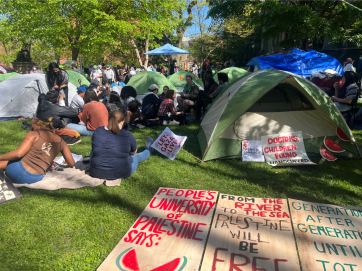As our survey, The Vanishing West, makes clear, we think that the state of undergraduate history education at American colleges and universities is dismal. At some schools, you can get through without taking a single history course and still collect your bachelor's degree. At many others, you can study anything from the fall of Rome to the secret sex lives of ante bellum southerners (How I wish that were mere hyperbole. See p.12 of the report for a citation). The Civil War, the making of the Constitution? Well, maybe, but that's up to you. And whatever you choose, expect to get a healthy portion of oppression, domination, plunder and exploitation.
I'm greatly heartened, therefore, by this recent essay in the CHE that argues for the return to teaching U.S. history from a "national" vantage point that would give due emphasis to the unique aspects of the American historical narrative. Needless to say, this bucks the recent trend towards a "globalized" approach which, as author Johann N. Neem requires us to believe that national identities and different historical appearances don't really matter, since we're all part of "one world," so to speak. But that's a dream, says Neem, and dreams usually "discount reality." In order to preserve American democracy, he argues, we need to be aware of its historical background and the circumstances that led to its development.
Refreshingly, Neem also calls for a turn away from the excessive condemnation and fault-finding which has dominated history textbooks for the past several decades. We needn't whitewash the American past, of course, but an exclusive emphasis on the negative aspects of our history is not the whole story any more than a jingoistic or "glorious" rendering would be.
Not everyone will agree with Neem's recommendation that the study of "national" history is good because it serves the goals of Progressive politics - such as the redistribution of wealth. But to one - myself, that is - who has recently sat on a history search committee and endured the obligatory litany of globalization, race, gender, class, domination, etc., etc., I have to say that Neem's essay makes for very uplifting reading. Hopefully, it signals a much-needed change of direction.













